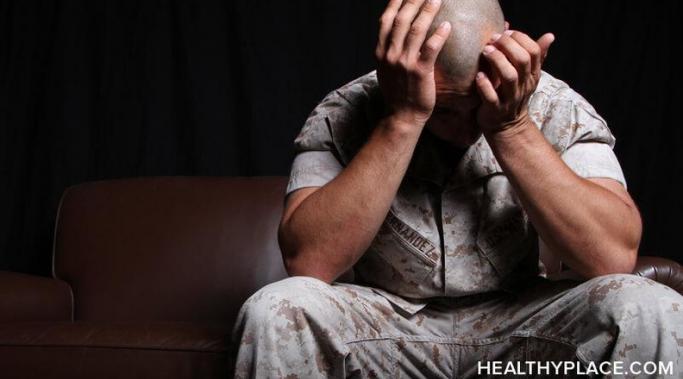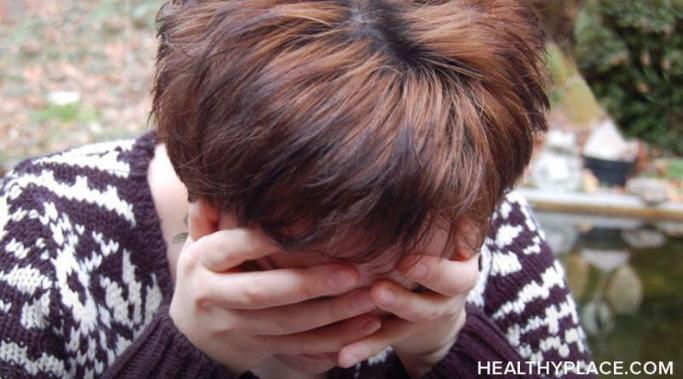Blogs
It should surprise no one that I consider mental healthcare an essential service for people. Now, I live in Canada and this means that I can get the care I need without paying for it, but people in the United States are not so lucky. I have to constantly hear about people who can’t get the care they need because of the limits placed on them by insurance companies.
And this is wrong.
Mental healthcare is as essential as any other kind of healthcare. If you have a broken leg, you expect treatment, and if you have a broken brain, you should expect the same thing.
Earlier this week, I wrote a blog on the topic of self-care when you live with a mental illness. Within that blog I focused on the importance of exercise, nourishing our bodies properly and having a regular sleep pattern. This blog will focus less on what we need to do to stay well but what we might consider avoiding--external and internal negative influences-- in order to recover from mental illness effectively.
Veterans Day always leaves me reflective about my short-lived Army career. I enlisted in 2003 as a specialist, but had a nervous breakdown during Basic Combat Training. I was hospitalized pending discharge--and saw firsthand the stigma that mental illness has in the military.
Many addicts have burnt bridges in their lives. It is possible, in some cases, to make an amends for any harm done. It can often help the one asking for forgiveness more than the injured party.
Today marks one year since our school lost a junior to suicide. That same month we lost another to suicide, and so did the school closest to ours. Tonight on the news I heard another local high school has had three suicides this past week. Someone asked me, what makes people feel that this is the answer? There can be many reasons but most common is the feeling of overwhelm, of dread, of powerlessness. As if there is no other option than escape. Similarly some citizens here in the states have suggested seceding from the union because they they are unhappy with our recent election. In some ways this could also be a flight response. (Not trying to start a political discussion, just noting people's fear.) As parents, one of the best things we could teach our children is resilience. To not fear adversity, but to buckle down in hard times and find ways to make it better.
Learn how confidence increases when you take time away from your busy schedule and build self-compassion in. Quick tips on building confidence and reaching your goals.
Those of us who labor in the heavily intoxicated vineyards of mental illness, mental health, and recovery – those of us who gaze in wonder at the never-ending inventiveness demonstrated by tormented souls scouring the landscape for new mechanisms of self-injury – those of us who chase the lighthouse beacon of serenity as we pitch and toss on a cultural sea of hazards, pitfalls, and demons – those of us who marvel at a world gone mad, a world intent on sabotaging health, moderation, and self-care at every step – those of us who, wracked by ADHD and overburdened by flashy, empty distractions – are united by one profound bit of good news – this sentence is about to come to an end.
In the Posttraumatic Stress Disorder Sourcebook, Glenn Schiraldi writes, “Life is feeling. Not to feel is to be dead.” That’s quite a statement considering, with PTSD, our biggest goal is to avoid our overwhelming feelings! It’s a tough conundrum: Coping and managing with PTSD requires you to dampen your emotions so that you can just get through the day. Healing, however, requires that you do feel your emotion – and get used to it. What’s a survivor to do?
One of the problems with psychotherapy (and, keep in mind, I like psychotherapy) is that psychotherapists try to look for a cause for every emotion. And this seems reasonable. Or at least it does, to a person without a mental illness.
When you are first diagnosed with a mental illness you are told--probably within the same five minutes--that self-care is crucial when working to become stabilized.
What is Self-Care and Why is It Important?







![MP900385750[1]](/sites/default/files/styles/blog_listing/public/uploads/2012/11/MP9003857501-731x1024.jpg?itok=CsQXXT54)
